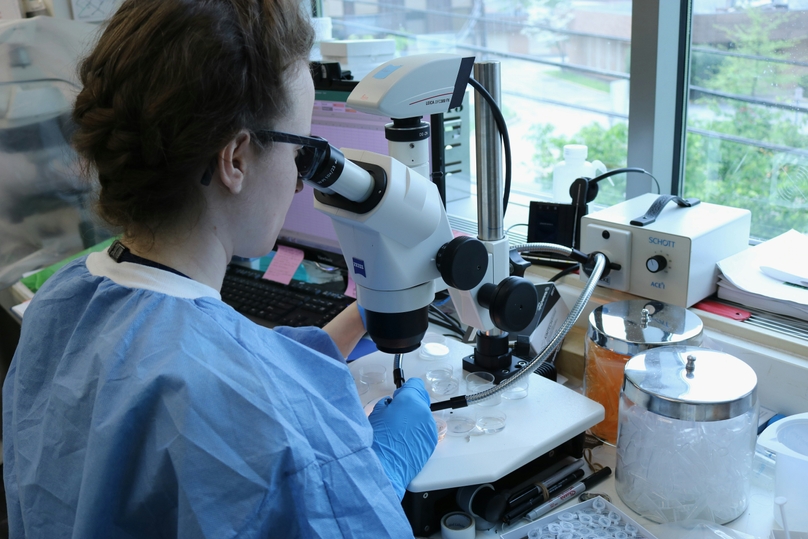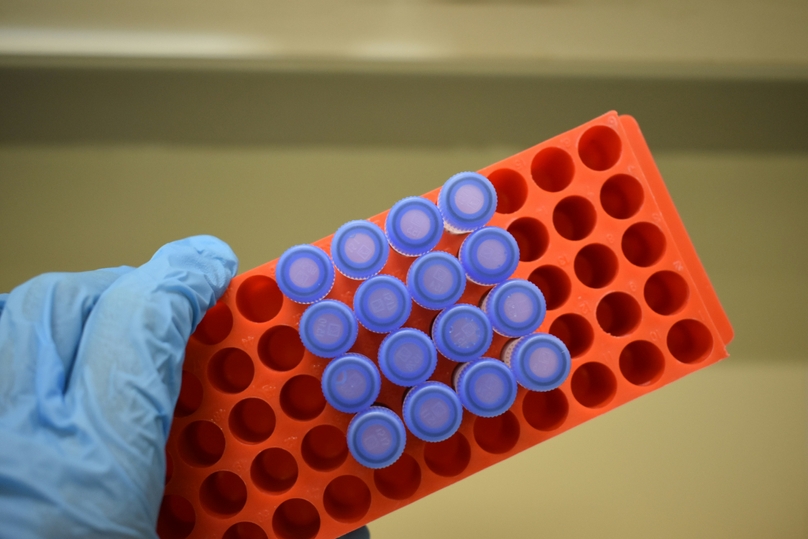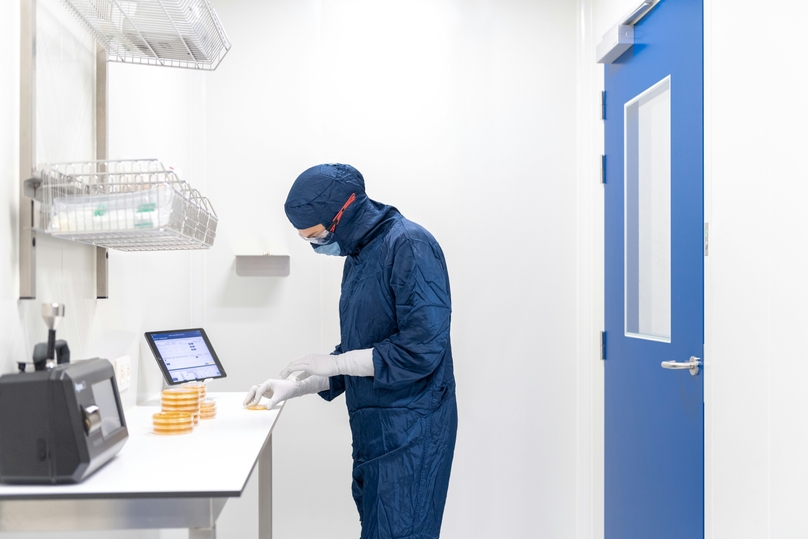Today’s mid-size biopharma and life science companies are facing new pressures to grow faster especially as they progress from early-stage research through clinical trials to commercialization. In this dynamic environment, scalable systems become more than just a technical preference—they are a strategic necessity. These systems enable companies to manage increasing workloads, including larger datasets and more intricate analyses without sacrificing efficiency or incurring excessive costs. While mid-size biopharma firms typically possess greater flexibility than startups, they often lack the robust infrastructure of large pharmaceutical corporations. This in-between position presents a unique set of challenges that must be carefully managed to ensure continued growth and competitiveness:
- As companies grow, they have to manage more research, products, and regions, which makes operations more complicated
- Biopharma and life science firms produce enormous amounts of data from imaging, next-generation sequencing, and high-throughput research. Many companies initially manage this data with spreadsheets but as data volume and complexity increase, these methods quickly become unsustainable, leading to bottlenecks and inefficiencies
- Regulatory requirements intensify with scale. The use of big data for compliance purposes has proven difficult, even with significant time and financial investments. The main issue is the lack of effective compliance reporting systems—most leaders still rely on manual, time-consuming processes that are resource-heavy and not scalable.
To avoid bottlenecks and delays, mid-size companies need digital systems that can grow with them. In its continuous effort to solve customer issues with flexible automation solutions, Genemod is offering the reliability of its Laboratory Information Management System (LIMS). Cloud-based LIMS solutions are especially valuable for mid-size companies, as they offer flexibility, scalability, and secure remote access, supporting growth without the need for major infrastructure investments.
If you're aiming to scale your life science lab efficiently, let’s explore how a Laboratory Information Management System (LIMS) is transforming scalability in the industry!
1. Standardizing Laboratory Workflows across Teams and Locations
Unreliable laboratory results can arise from variations in protocols, equipment, and reference ranges within siloed leadership systems, making data interpretation difficult and potentially compromising research quality—especially when results from different labs are not comparable, leading to confusion and misinterpretation. To address these challenges, LIMS offers standardized templates for protocols and workflows, ensuring consistency across teams and locations. This uniformity helps minimize variability and error rates, promoting reliability in both data collection and reporting. With all standard operating procedures (SOPs) stored in a centralized, easily accessible platform, LIMS solutions enhance consistency and ensure compliance. Moreover, this centralized approach fosters regular communication and the exchange of best practices across sites, ultimately strengthening collaboration and improving problem-solving capabilities.
2. Increasing Operational Efficiency through Automation
Midsize biopharma and life science companies face escalating production demands and can’t afford mistakes so efficient and error-free operations are essential. Laboratory Information Management Systems (LIMS) help prevent errors by tracking samples throughout their lifecycle, ensuring seamless management. By automating data entry and report generation, LIMS reduces manual workload, speeds up processing, and shortens result turnaround times. These automated systems also enable faster handling of both high-priority tests and routine diagnostics, allowing labs to manage high volumes without compromising quality. Life science lab software shortens overall process timelines and increases "walkaway time," giving researchers more freedom to focus on other important projects.
3. Ensuring Compliance and Audit-Readiness at Scale
As biopharma laboratories scale, they encounter increasingly complex and stringent regulations. A Laboratory Information Management System (LIMS) helps meet these challenges by enforcing role-based access controls, ensuring that only authorized personnel can access or modify sensitive data. This not only minimizes the risk of unauthorized changes but also supports compliance with critical data privacy standards such as GDPR and HIPAA. To further protect data integrity and availability, LIMS includes features like encryption and automated backups. Every modification made within the system is automatically recorded, generating accurate audit trails complete with timestamps, user details, and procedural notes. This built-in transparency and traceability are essential for meeting regulatory requirements. With automated audit logs, real-time reporting, and compliance dashboards, lab managers can quickly assess regulatory readiness and generate required reports—streamlining inspection processes and minimizing manual effort.
4. Improving Cross-Team Collaboration and Communication
Life science companies in their development processes increasingly adopt cross-functional practices to enhance efficiency and innovation. Cross-functional teams—comprised of individuals from various departments—collaborate to achieve shared goals. A key strategy for strengthening this collaboration is the use of a centralized platform that facilitates seamless communication across teams. With a system like Genemod LIMS, team members can engage in frequent discussions and easily connect with the right colleagues when needed. Employees from different departments can ask questions, share updates, and coordinate efforts—all within a single, unified space that promotes visibility and agility. This centralized approach minimizes delays and miscommunication by ensuring everyone has access to real-time project information and status updates. Genemod LIMS empowers teams to clearly understand their objectives and how their individual contributions align with the bigger picture. As a cloud-based collaboration tool, it offers robust features for individuals, project managers, and biopharma teams to work together efficiently.
5. Leveraging Data for Smarter, Scalable Decisions
Centralized data management offers a range of benefits for biopharma and life science companies, streamlining operations and enhancing overall efficiency. By providing quick access to critical information from a single source, it reduces the time spent searching across multiple systems and improves data accessibility. This eliminates the need for email exchanges, allowing both operators and clients to view real-time data simultaneously, fostering better alignment and building trust. In today’s data-driven environment, the ability to visualize information is a strategic advantage. Effective data visualization simplifies complex datasets and supports faster, more informed decision-making. Having timely access to aggregated data significantly boosts operational capabilities, making it easier to generate reports and perform in-depth analytics. As the biopharma industry continues to grow, so does the need for scalable, future-ready solutions. Genemod’s scalable laboratory platform meets this need by enabling companies to stay agile, adapt to evolving conditions, and remain compliant with changing regulatory requirements.
6. Accelerating Tech Transfer and External Collaborations
A Laboratory Information Management System (LIMS) plays a pivotal role in streamlining technology transfer by documenting laboratory processes in a standardized, digital format, ensuring consistency and traceability. As the market for biologics continues to expand, Contract Development and Manufacturing Organizations (CDMOs) are increasingly integrating LIMS into their operational strategies to meet growing demands. LIMS facilitates faster onboarding for external partners by offering easy access to standardized protocols, historical records, and training resources—minimizing ramp-up time and reducing confusion. In biopharma and life science laboratories, the development of Advanced Therapy Medicinal Products (ATMPs)—based on genes, tissues, and cells—requires advanced expertise. It becomes a clear mismatch when such high-level capabilities are supported by outdated paper-based systems, manual workflows, and unreliable data collection methods. By automating critical workflows, LIMS significantly cuts down on errors and rework, ultimately saving time and reducing operational costs.
Building a Scalable Future with LIMS
LIMS plays a key role in transforming mid-size biotech operations by automating laboratory workflows, improving data accuracy, and ensuring GxP compliance. As labs grow, this life science lab software easily scales to support higher sample volumes, new workflows, and more users—without losing efficiency. A Laboratory Information Management System (LIMS) also enhances collaboration and delivers timely, accurate results, boosting customer satisfaction. This scalable solution adapts smoothly to new technologies and evolving needs, making it essential for scaling biotech operations.
Get Started with Genemod
Genemod is a leading LIMS vendor, known for its flexible software solutions and cost-effective pricing. Designed for mid-size biopharma and life science companies, Genemod’s LIMS empowers teams with the efficiency, functionality, and productivity needed to thrive.
Reach out to Genemod today to learn how our LIMS can transform your lab’s performance!
















